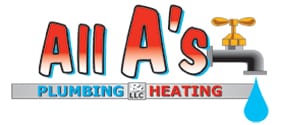High-Efficiency Boiler vs Standard
When was the last time you thought about your home boiler system? Indeed, home boiler systems are not on everyone’s mind. You rarely see them, but you feel their effects every day. Without a boiler, you would have a hard time heating your house. They also are responsible for keeping that bath or shower water of yours wonderfully hot. Boilers go unnoticed in many homes. That is until they stop working.
If you are in the market for a new boiler, what type of boiler should you choose? Should you select a high-efficiency boiler or a standard boiler? Here is some information for you on the best boiler for you and your house.
About Boilers
A boiler is the heart of a heating system. Boilers heat the hot water, and, then, send the steam to the radiators so your whole house heats properly. It is also responsible for heating the water in your bathroom and kitchen. A good boiler can heat your water to a great temperature, and, then, it can heat your home efficiently. There are different kinds of boilers to choose from.
Efficiency
There are two types of efficiency boilers. The government determines efficiency by how much fuel boilers use to heat your home and water. Each boiler has an Annual Fuel Utilization Efficiency (AFUE) rating. Companies use fuel efficiency ratings to determine whether a boiler is standard-efficiency or high-efficiency. Fuel efficiency ratings also tell you about how much a boiler will cost to operate during the year. This will give you an idea of the cost of your boiler over time.
Standard-Efficiency Boiler
A standard-efficiency boiler means the boiler has an efficiency rating between 80 percent and 84 percent. Usually, standard-efficiency boilers have a heat exchanger made of cast iron, and they vent through the chimney. Sometimes you can find a standard boiler that is either direct-vented or power-vented. Direct-vented means the boiler directs the gas to the outdoors through a pipe in your house. Power-vented means a blower or fan pushes the air out of your house. The best thing about a standard boiler is that it is cheaper than a high-efficiency boiler. However, it is usually not rebate-eligible, so it may not be the best value for your money.
What Is A High-Efficiency Boiler?
High-efficiency boilers have to have an AFUE rating above 90 percent. These boilers use either a stainless steel or aluminum heat exchanger. People prefer stainless steel or aluminum because they are good heat exchangers and they last a long time. High-efficiency boilers are usually direct-vented, but you may be able to find a power-vented option. A high-efficiency boiler is more expensive upfront. Also, the requirements for the installation of high-efficiency boilers are more stringent. However, they last a long time. They are also better for the environment and can save you up to 30 percent on your heating bill. You may also be eligible for a state or federal rebate, which would save you even more money.
Condensing Boiler
Condensing boilers are usually part of the high-efficiency system. Condensing boilers are able to give you more heat for less energy used. They take advantage of all the energy released when water vapor condenses. A condensing high-efficiency boiler will give you an additional 10 percent in efficiency over a noncondensing boiler. This translates to even more savings on your bill.
Are you thinking about getting a new boiler? Why not give us a call? Let us help you find a boiler that is perfect for you. Contact All A’s Plumbing. We are in Randolph, N.J., in Morris County.
We do service the surrounding counties of Sussex and Essex as well as Morris.



Recent Comments